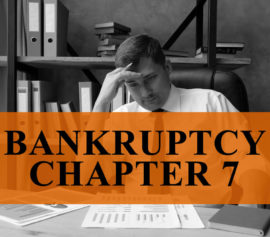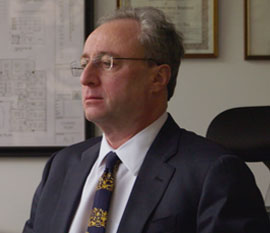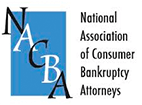Does Chapter 7 Bankruptcy Wipe Out All Debt in NY?

The attraction of a Chapter 7 bankruptcy filing for those in need of debt relief is that it can erase many types of debt and help an individual make a fresh start financially.
A Chapter 7 bankruptcy or straight bankruptcy, as it’s also called, is the most common type of bankruptcy filing. Most types of debt, including credit card debt, medical bills, utility bills, and personal loans, are forgiven.
But certain debts are non-dischargeable through a straight bankruptcy and must still be paid or settled for an individual to emerge from bankruptcy.
A White Plains bankruptcy lawyer at Michael H. Schwartz, P.C. can help you determine whether a Chapter 7 bankruptcy is the best option for your financial situation. If Chapter 7 bankruptcy is an option for you, then you need the legal advice an experienced bankruptcy attorney. NY bankruptcy bankruptcy attorney Michael H. Schwartz has helped thousands of New Yorkers who were facing overwhelming debt make a fresh start. Call 1-855-637-1834 or fill out our online form for a consultation about how we can help you.
Contents
What is Chapter 7 Bankruptcy?
A straight bankruptcy under Chapter 7 of the U.S. Bankruptcy Code is an option for individuals who have overwhelming debt and need debt relief. If you meet the eligibility requirements under bankruptcy laws, a Chapter 7 bankruptcy filing is the quickest and least expensive way to enter and emerge from individual bankruptcy.
In a Chapter 7 bankruptcy, an individual is allowed to keep most if not all of your property, and most types of debt are discharged. You may be allowed to keep your home, clothing, furniture, car, or truck up to a certain value, work tools, and retirement account. A bankruptcy trustee, appointed by the court, will review your list of assets.
To be eligible for Chapter 7, you must qualify under an analysis of your income and debt. The bankruptcy court will determine whether your income is low enough to qualify for Chapter 7 or whether you have sufficient regular monthly income to pay your creditors.
Discharged Debt under a Chapter 7 Bankruptcy in New York
Most types of debt may be discharged in a Chapter 7 bankruptcy. These include:
- Credit cards (including overdue and late fees)
- Medical bills
- Personal loans
- Utility bills (past due amounts only)
- Bounced checks (unless fraudulent)
- Auto accident claims (except in drunk driving cases)
- Business debts
- Civil court judgments (except in fraud cases)
- Social Security overpayments
- V.A. loans and overpayments.
Debt Not Discharged under a Chapter 7 Bankruptcy in New York
But there are certain types of debt that cannot be discharged. They include:
- Alimony
- Child support
- Some taxes
- Student loans
- Loans owed to or guaranteed by government agencies under specific statutes
- Fines or claims related to drunk driving
In most cases, an individual whose primary debt is consumer credit card debt or medical bills may wipe the slate clean through a Chapter 7 bankruptcy.
When Do You Need a NY Bankruptcy Lawyer?
If you are considering a Chapter 7 bankruptcy, the first step is an analysis of your assets, debts, and income. A knowledgeable N.Y. bankruptcy attorney can help you determine whether you qualify for a straight bankruptcy. Your financial status must be fully documented as part of the petition for bankruptcy that is submitted to the U.S. Bankruptcy Court.
Filing for bankruptcy can be overwhelming, but Michael H. Schwartz, P.C. can do the analysis to determine your eligibility for Chapter 7 or another type of bankruptcy protection and ensure that your petition is complete and correct the first time. A Chapter 7 bankruptcy may be resolved within a matter of months.
If you’re ready to file bankruptcy in NY, contact us online, visit us in person or call 1-800-ON MY SIDE. The law firm of Michael H. Schwartz, P.C. serves clients in White Plains, Putnam, Westchester, and Rockland counties and throughout the Hudson Valley area.

Michael H. Schwartz is the largest filer of bankruptcy cases for people living in Westchester and Rockland counties in New York. A graduate of New York Law School, Michael has been licensed to practice in New York State courts since 1983. He is also licensed to practice in the U.S. Bankruptcy and District Courts for the Southern, Eastern and Northern Districts of New York and the District of New Jersey as well as the Second Circuit U.S. Court of Appeals. He is a graduate of Max Gardner’s Bankruptcy and Veterans’ Boot Camps. Several media outlets have reported on his cases or sought his insights, including The New York Times.





